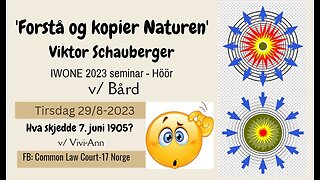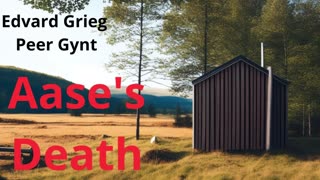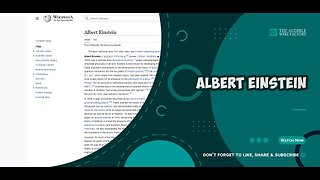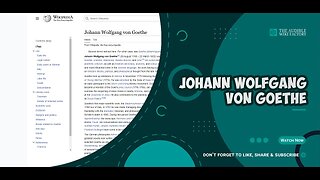Unge Forskere-finalen (Young Researcher Award Final) 2020 -Alexander Winkler Award #2
Alexander Winkler of 14 years won the title of Young Scientist of the Year. Photo: Young Scientist Nanna Hein April 24, 2020 Contact "Young Scientists" is a science competition for children and young people. This year's winners have now been found. Every year, the youngest talents in science are honored with awards at the Young Scientists competition.
Today on Friday the winners were selected - in a slightly different way than usual. The big prize-giving is usually held at the Bremen Theater in Copenhagen. But this year, the corona virus got in the way. Instead, the award was filmed and streamed live on the Young Scientist's Facebook page.
Today's big winner was a 14-year violin builder from Roskilde.
What are “Young Scientists”?
Young Scientists is an annual talent competition - in fact it is Denmark's largest natural-science competition.
The competition is for children and young people who come from across the country to compete for who has created the best science project. The competition was created by Astra, the national science center. The competition is divided into two major categories.
The youngest participants compete for the title of Young Scientist of the Year, and the older ones can be named Young Scientist of the Year.
The two winners each receive a prize of 25,000 kroner. Each of the two categories has three sub-categories, which are Life Science, Physical Science and Technology. Here, the top four participants in each category can win a cash prize.
This year, 258 elementary and high school students ages 9-19 earned themselves the National Young Scientist final. Winners advance to two international competitions in Spain and China.
Who won?
It became Alexander Winkler at the age of 14 from Skt. Joseph's School in Roskilde, which won the main prize in this year's Young Scientist Junior category of DKK 25,000.
About a year ago, he started playing violin. And he discovered that they are cheap violins, which many children and young people start playing on, may not sound as good as high-quality violins at all. "It's hard for students and young violinists to play on cheap, usually Chinese, violins for maybe $ 1,000. So I'd like to help them," he says.
He used his knowledge of physics and various analysis tools to examine 10 different violins from the cheapest to the most expensive. And he used the results to rebuild a cheap violin. Among other things, he has changed the thickness of the plates at the top and bottom of the instrument, and he has tested different types of varnish.
And he succeeded in rebuilding the violin so that he could measure the same high quality as in a violin for DKK 100,000.
Check out Alexander's YouTube Channel for more videos related to his musical interests in classical music and the violin by clicking the following URL: https://www.youtube.com/channel/UChU-0d1feELyQabomvAvPjA
-
 5:55
5:55
Studio International Art Magazine
1 year agoSigurður Guðjónsson interview | Icelandic Pavilion, Venice Biennale, 2022
45 -
 2:05:55
2:05:55
Common Law Court Norway (previous InitiateQ NESARA NORGE)
9 months ago2023-08-29 Viktor Schauberger Forstå og kopier naturen v/Bård
331 -
![Günther Fischer Quintett & Hansi Klemm - Kosmoslied [1978 Space Rock Prog Electronica GDR Germany ]](https://hugh.cdn.rumble.cloud/s/s8/1/z/2/h/i/z2hil.0kob-small-Gnther-Fischer-Quintett-and.jpg) 4:32
4:32
The Day After The Sabbath
10 months agoGünther Fischer Quintett & Hansi Klemm - Kosmoslied [1978 Space Rock Prog Electronica GDR Germany ]
79 -
 4:34
4:34
goldenflameclassic
1 year agoEdvard Grieg Peer Gynt Suite no 1 Op 46 II Aase's Death
31 -
 1:12:28
1:12:28
The Audible Wiki Factory
1 year agoAlbert Einstein was a German-born theoretical physicist, widely acknowledged to be one of the
197 -
 2:20
2:20
ArchitectClips
3 years agoTour In Villa Fifty-Fifty By Studioninedots In EINDHOVEN, THE NETHERLANDS
28 -
 50:23
50:23
Hörspiele Hörbücher Krimis
1 year ago $0.02 earnedKRIMI Hörspiel - Michael Koser - Prof. van Dusen - 057 - VAN DUSEN SIEHT DOPPELT (1990)
37 -
 47:41
47:41
The Audible Wiki Factory
1 year agoJohann Wolfgang von Goethe was a German poet, playwright, novelist, scientist, statesman,
195 -
 0:18
0:18
Be a polyglot!
1 year ago🇫🇷The first Nobel Prize in Literature/Le premier prix Nobel de littérature
7 -
 1:15:36
1:15:36
Cave of Apelles
1 year ago $0.01 earnedHjalmar Hagelstam on Odd Nerdrum, Rembrandt, Florence Academy and the Failure of Finnish Painting
190